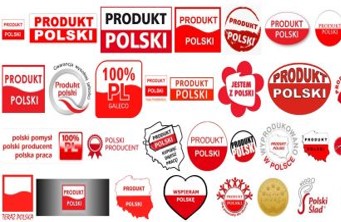Poles are one of the five nations that are most afraid of deterioration of the economy due to the coronavirus pandemic. Every fifth of us is concerned about the vision of the end of prosperity – more indications were only in Japan. According to the ARC institute in a recent report – this anxiety translates – at least declaratively – into a willingness to support Polish companies and the economy. Over 60% of Poles declare their desire to help Polish companies, and 90% of them promise support by buying more often products and services of Polish companies. However, before we, as marketers, take into account these ardent declarations, it is worth realizing what additional aspects stand behind them and how to use them skilfully for our marketing and business purposes:
1. WHAT “POLISH” MEANS FOR A POLE
Here we encounter the first obstacle and challenge. People identify the Polishness of the brand primarily with … Polish name, without going into boring details of shares and ownership of these companies. For 82% of Poles, therefore, Wyborowa is the embodiment of Polishness (although for years the brand has been owned by the French concern Pernod Ricard), while for 30% of consumers, the Portuguese Biedronka is a genuinely Polish store. At the same time, some Polish clothing brands, precisely through the name or “foreign look” of advertisements, effectively blur their Polishness; aspirational-sounding Monnari and Wittchen (according to Open research) are recognized as native brands only by every fourth Pole. This funny, understandable mess, shows how “Polishness” is not an acquired good, but a feature to be owned by anyone who wants to use it persistently and wisely in communication (well, maybe except for Kaufland, which because of the name remains a German brand, no matter what it does).

2. WHAT INDUSTRY IS WORTH FIGHT FOR POLISHNESS?
Polishness is a transmitter of certain specific features that translate into product perception. The respondents considered safety as the most significant positive feature of Polish products. Food brands, Polish cosmetics … or the banking industry all use this parameter successfully. However, for some businesses, Polishness can be “troublesome” – for example, the home appliances industry, where Polish origin is an argument … negative for most respondents (ARC).

3. SPECTACLE OF POLISHNESS – EVERYONE CAN CREATE A LOGO
The regulations do not clearly state who can and who cannot use Polish signs. As it happens in such situations – the decision deadlock encourages visual creativity, and you can see the results in the attached illustration. Unfortunately – even having a “legal” and proprietary logo does not change much, because it will disappear in the mass of others.

